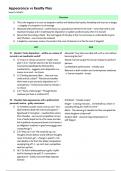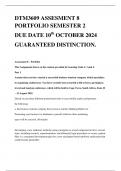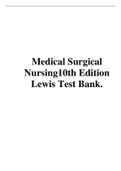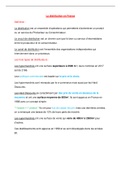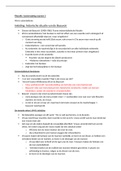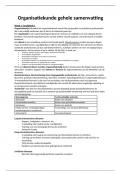Essay
Hamlet detailed A-Level essay plans for Appearances, Revenge and Madness (likely for OCR 2024)
- Module
- Hamlet (H474)
- Institution
- OCR
Detailed essay plans covering AO1 and AO5 with complex analysis that achieved full marks at OCR A-Level. Appearances, Revenge and Madness are 3 very likely topics for the 2024 exams as they are yet to come up. These plans are comprehensive and will prepare you well. Created by a student who got an ...
[Show more]
